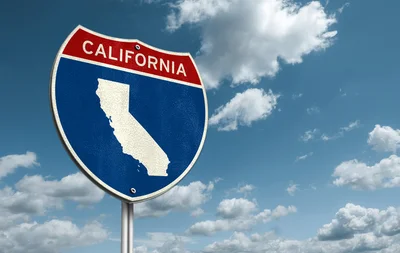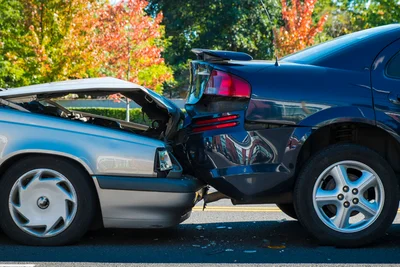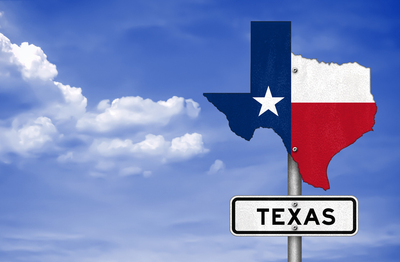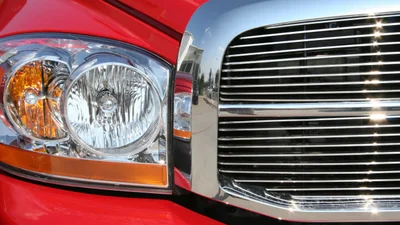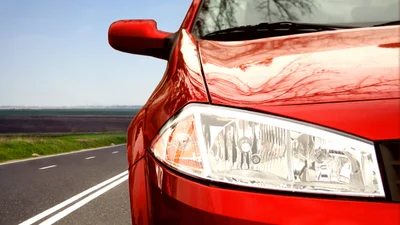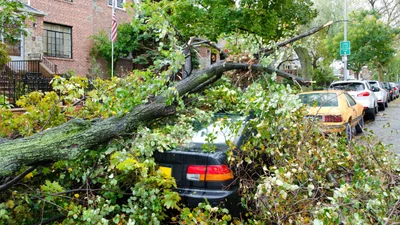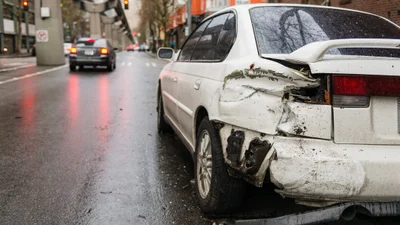Best car insurance companies of August 2023
Published 2:25 a.m. ET Aug. 1, 2023
Editorial Note: Blueprint may earn a commission from affiliate partner links featured here on our site. This commission does not influence our editors' opinions or evaluations. Please view our full advertiser disclosure policy.
The best car insurance companies offer consistent customer service and a variety of coverage options at a competitive price. We reviewed the top insurers in the nation to help you find the right one for your car insurance needs.
Why trust our insurance experts
Our team of experts evaluates hundreds of insurance products and analyzes thousands of data points to help you find the best product for your situation. We use a data-driven methodology to determine each rating. Advertisers do not influence our editorial content. You can read more about our methodology below.
- 780 companies analyzed
- 7,800 rates reviewed
- 5 levels of fact-checking
Key points
- The overall best car insurance company of 2023 is American Family.
- USAA, Nationwide and Auto-Owners also have 5-star ratings.
- USAA is the cheapest car insurance company for good drivers, with an average rate of $1,412 per year.
The best auto insurance companies at a glance
- Best car insurance: American Family
- Best for drivers with an accident on their record: Auto-Owners
- Best for collision and comprehensive coverage: Nationwide
- Best for the military community: USAA
- Best for drivers looking for low-cost coverage: Geico
- Great for customers buying a new vehicle: Travelers
- Best for family discounts: Westfield
Get car insurance quotes
Compare the best car insurance of 2023
| Company | Our rating | Average annual cost | Complaint level | LEARN MORE | ||
|---|---|---|---|---|---|---|
| American Family | 5.0 stars | $2,176 | Very low | Compare Rates | Compare rates offered by participating partners | |
| Auto-Owners | 5.0 stars | $1,628 | Low | Compare Rates | Compare rates offered by participating partners | |
| Nationwide | 5.0 stars | $2,041 | Very low | Compare Rates | Compare rates offered by participating partners | |
| USAA | 5.0 stars | $1,412 | Average | Compare Rates | Compare rates offered by participating partners | |
| Geico | 4.5 stars | $1,716 | Average | Compare Rates | ||
| Travelers | 4.5 stars | $1,852 | Very low | Compare Rates | Compare rates offered by participating partners | |
| Westfield | 4.5 stars | $1,759 | Very low | Compare Rates | Compare rates offered by participating partners | |
| Allstate | 3.5 stars | $3,000 | Low | Compare Rates | Compare rates offered by participating partners | |
| Farmers | 3.5 stars | $2,381 | Low | Compare Rates | Compare rates offered by participating partners | |
| Progressive | 3.5 stars | $2,157 | Low | Compare Rates | Compare rates offered by participating partners | |
| State Farm | 3.5 stars | $1,959 | Low | Compare Rates | Compare rates offered by participating partners | |
| Erie | 3.0 stars | $2,144 | Low | Compare Rates | Compare rates offered by participating partners | |
| Safe Auto | 1.0 stars | $2,647 | Very high | Compare Rates | Compare rates offered by participating partners |
What is the best car insurance company?
The best car insurance company is American Family (AmFam), according to our analysis. With an average annual rate of $2,176 per year for good drivers, AmFam isn’t the cheapest car insurance company in our analysis. However, the insurer offers a slew of discounts to help drivers score lower rates. AmFam also offers optional coverages and add-ons, such as accident forgiveness, new car replacement and a diminishing deductible.
With the AmFam diminishing deductible, you get a $100 credit at the start of your policy (or $50 for 6-month policy terms), and every year you go claim-free your deductible decreases by $100, with a maximum credit of $500. That means a $500 deductible can go down to $0 if you’re claim-free for five years.
The customer experience may be another reason to consider American Family. It has the lowest number of consumer complaints among the insurers we analyzed, based on data from the National Association of Insurance Commissioners (NAIC) complaint index.
Best cheap liability-only coverage: Auto-Owners and USAA
The best car insurance for liability-only coverage is sold by Auto-Owners and USAA. Both offer liability coverage below the national average and receive a 5-star rating in our analysis.
Auto-Owners has the cheapest liability-online coverage, with an average rate of $404 a year, though USAA only trails slightly behind with an average rate of $466 a year.
Liability insurance is required in most states and pays for the other party’s injuries and property damage if you’re at fault for an accident. A liability-only car insurance policy does not include any additional coverage, like personal injury protection (PIP) or collision and comprehensive coverage.
Best liability-only car insurance companies
Best car insurance for senior drivers: Auto-Owners, Nationwide and Travelers
Auto-Owners, Nationwide and Travelers are all great for drivers age 60 or older. Each insurer earns 5 stars in our best car insurance for seniors rating.
Nationwide offers the cheapest rates for senior drivers out of the bunch, with an average rate of $1,397 per year, or $116 per month. If you’re looking for the cheapest car insurance for seniors, you may also want to consider USAA, which has an average rate of $1,551 per month.
Best senior car insurance companies
Best car insurance for teen drivers: American Family
The best car insurance company for teen drivers is American Family.
American Family policyholders who add a teen driver to their car insurance policy pay an average of $1,556 per year.
Car insurance companies tend to raise rates when you add a teen to your policy, as teens are less experienced drivers and therefore pose a higher risk.
Many companies offer discounts to teen drivers who maintain good grades, or to college students who leave their vehicle at home while they’re living on campus.
You may also be able to score a discount for vehicles with certain safety features, like backup cameras or lane assist sensors. Cars with lane departure and blind spot sensors tend to benefit teen drivers, according to a study by The Insurance Institute for Highway Safety.
Best average rates for adding a teen driver
Did you know? Teen drivers are 4 times more likely to get in an accident than older drivers.
Best home and auto insurance bundle: American Family, State Farm and USAA
American Family, State Farm and USAA are all great for bundling your auto and home policies.
Of the three, State Farm offers the biggest discount for a home and auto bundle, with up to 18% off on your premiums. Nationwide and Auto-Owners also make our rating of the best home and auto bundles.
Bundling discounts are some of the highest discounts you can score from your insurer. “If you buy two types of insurance from the same insurer, such as auto and home insurance (or auto and renters insurance, or auto and condo insurance), you can generate significant savings on each policy.
The amount you can save depends on your insurer, but discounts typically run about 10% to 20% of the annual premium,” said Mark Friedlander, spokesperson for the Insurance Information Institute.
Best average savings for bundling home and auto insurance
Best car insurance company by customer complaints: American Family
The car insurance company with the least amount of consumer complaints, based on the NAIC complaint index, is American Family.
The industry complaint average is 1.0, and anything below that is considered below average. American Family scored 0.16, which our insurance experts consider very low.
Complaint level by car insurance company
Average annual car insurance rates by state
Car insurance rates vary by state and even ZIP code. Here’s the average cost of car insurance for a good driver in every state.
Average annual cost of car insurance by state
States with the most summer driving fatalities
Summer is the deadliest time of year to be on the road in the U.S. The number of fatal crashes during summer months increased by nearly 40% in some states, from 2018 to 2021.
Rhode Island, Minnesota and New Jersey have seen the largest increase in summertime fatal crashes, from June to August. And fatal crashes caused by speeding have increased by 24% nationwide.
Before hitting the road this summer, check your car insurance policy to make sure you have enough car insurance coverage to protect you financially if you’re involved in a crash.
How much does car insurance cost?
The average annual car insurance rate for good drivers is $2,067, or about $172 per month according to our analysis.
How much you pay for coverage depends on several factors, including:
- Type of coverage purchased.
- Coverage limits selected.
- Selected deductible, when applicable.
- Your age.
- Your gender (except in California, Hawaii, Massachusetts, Michigan, North Carolina and Pennsylvania).
- Your location.
- Your claims history.
- Your car insurance history.
- Your credit-based insurance score (except in California, Hawaii, Massachusetts and Michigan).
- Make, model and age of the vehicle.
- Special equipment or features of the car.
Average annual rate based on driver profile
What is car insurance?
Car insurance is an agreement between you and an insurer that provides financial protection if you’re involved in an accident or another covered incident. In exchange for a premium or regular policy payment, your insurer will cover financial losses associated with a covered accident or incident.
Depending on the type of coverage you have, car insurance can help cover accident-related expenses such as:
- Injuries to you and your passengers.
- Injuries to another driver, their passengers and pedestrians involved in an accident.
- Repairing or replacing another driver’s vehicle if you’re at fault for an accident.
- Repairing or replacing your vehicle if it was damaged, totaled or stolen.
- Legal expenses if you’re sued after an accident.
What types of car insurance do I need?
Most states require motorists to purchase liability car insurance, but depending on where you live and whether you finance your vehicles, you may be required to purchase other types of coverage. Here are the most common types of car insurance to consider.
Liability insurance
Liability car insurance covers costs incurred by other drivers and their passengers if you’re at fault for an accident, as well as your legal defense and any judgments or settlements if you are sued. It is broken down into two parts:
- Bodily injury (BI) liability covers the cost of medical care and related expenses incurred by the other driver, their passengers or a pedestrian injured in an accident you caused. It can also cover your legal expenses if you’re sued after an accident.
- Property damage (PD) liability covers the cost to repair or replace another individual’s property, such as their vehicle, that was damaged after an accident you caused.
Some level of liability insurance is required in every state except New Hampshire and Virginia. Even drivers in those states may find they still need coverage in certain situations.
Uninsured motorist/underinsured motorist insurance
Uninsured motorist (UM) insurance covers you and your passengers if you’re injured in an accident caused by an uninsured driver or if you are the victim of a hit-and-run. In some states, uninsured motorist insurance may cover the cost to repair or replace your vehicle if it was damaged in an accident caused by an uninsured driver.
Underinsured motorist (UIM) insurance offers similar coverage if you’re in an accident with a driver who doesn’t carry enough insurance to cover accident-related costs.
UM coverage is required in some states, but many insurance experts highly recommend adding it to your policy even if it is not required in your state.
Collision coverage
Collision coverage pays to repair or replace your vehicle if it was damaged after “colliding” with an object, such as a vehicle, fence or tree. It can also provide coverage if you are involved in a hit-and-run or a roll-over accident.
There are no states that require collision coverage, but your lender or lessor may require it if you finance your car. It is typically bundled with comprehensive car insurance.
Comprehensive coverage
Comprehensive car insurance coverage reimburses you for losses from theft, as well as damage caused by an event other than a crash. This includes damage from hail, flooding, fire, vandalism, theft, collision with an animal or falling objects, such as rocks or tree limbs. Generally, it covers damage caused by an incident that you could not have prepared for or prevented.
Like collision coverage, comprehensive car insurance isn’t required at the state level but is often necessary if you finance your vehicle.
Personal injury protection
Personal injury protection (PIP) will cover accident-related medical bills for you, your passengers and family members in your household, regardless of who is at fault for the accident. It can also cover lost wages and the cost of everyday services, like childcare, if an accident leaves you or your passengers unable to complete the task.
PIP is usually required in “no-fault” or “choice no-fault” states and unavailable in others.
Medical payments coverage
Medical payments coverage, commonly called MedPay, covers accident-related medical bills for you and your passengers, regardless of who is at fault. This can include the cost of doctor visits, ambulance services, X-rays, surgery and funeral fees.
MedPay, which is required in some states, is similar to PIP, but coverage is limited to medical expenses. It will not cover lost wages or replacement services.
How to save on car insurance
Here are some things you can do to get cheaper car insurance:
- Take advantage of car insurance discounts. Ask your insurer about car insurance discounts, like good driver discounts and bundling home and auto insurance.
- Participate in usage-based programs. These programs track how you drive, so you may score lower rates if you drive safely or infrequently, depending on the program.
- Drive safely. Drivers with a good record and no traffic violations tend to see lower rates.
- Go claims free. Your insurer may offer cheaper car insurance rates if you go claims-free for a certain number of years.
- Keep your credit score up. Insurers factor in your credit score when determining how much you’ll pay. The better your credit score the cheaper your car insurance may be.
- Choose a higher deductible. If you raise your deductible you’ll see lower rates, but your claims payout will be smaller.
- Shop around. It’s important to compare car insurance quotes regularly to make sure you’re getting the best deal for your coverage needs.
Find the best car insurance for your needs
To find the best car insurance company for you, figure out what types of car insurance coverage you need before getting several car insurance quotes to compare.
Determine the type and amount of car insurance coverage you want
Any car insurance policy you buy should meet your state car insurance requirements, at a minimum. If you finance your vehicle, you must also factor in lender requirements, which often include collision and comprehensive coverage.
After you meet any state or lender requirements, determine what, if any, additional types of coverage you’d like included in your policy. For instance, if you finance a new car, you may want to consider gap insurance until you pay off your auto loan.
Purchasing coverage you don’t need can lead to unnecessarily high premiums, while not carrying enough coverage can leave you financially vulnerable if you or your car are involved in a collision.
Get and compare car insurance quotes
Getting several quotes will give you a sense of which companies best meet your needs and preferences, which may be even more important than finding the lowest price.
“We recommend obtaining at least three quotes from a mix of national and regional insurers. This way, you can compare cost and coverage apple to apples. You can obtain quotes online, through independent and exclusive insurance agents or directly from insurers,” said Friedlander.
It’s also a good idea to find out if you’re eligible for any discounts, such as a home and auto bundling discount or a good student discount.
Methodology
Our insurance experts evaluated top car insurance companies in the nation to determine which offer the best car insurance based on average rates, coverage features, collision claims process and consumer complaints.
Each car insurance company was eligible for up to 100 points, based on its performance in the following key categories:
Cost: 50 points. We analyzed rates from Quadrant Information Services based on seven driver profiles for a policy with 100/300/100 in liability coverage, uninsured motorist coverage and comprehensive and collision coverage. We awarded up to 50 points based on insurers’ average rates for:
- Drivers in various age groups.
- Drivers with bad credit.
- Good drivers.
- Drivers with infractions, such as speeding tickets, an accident or a DUI on their record.
Consumer complaints: 30 points. We collected complaint data from the National Association of Insurance Commissioners, which shows the volume of car insurance consumer complaints against each company. When a consumer lodges a complaint to their state’s department of insurance — often about an insurance company’s claims process, delays, denials or settlements — these complaints are logged and tracked.
Car insurance coverage features: 15 points. Car insurance policy features can help make coverage more affordable both before and after an accident or covered incident. We evaluated car insurance policies offered by each insurer and awarded points to insurers that offered these valuable benefits:
- Accident forgiveness (5 points).
- New car replacement (5 points).
- Vanishing deductible (5 points).
SR-22 availability: 5 points. After a major traffic violation, some drivers must provide proof that they have the type and amount of coverage required by their state. Proof of coverage is obtained through an SR-22 filing, but not all insurers offer SR-22. Insurance companies that offer SR-22s were awarded points.
Why some companies didn’t make the cut
Insurance companies with rates significantly higher than the national average, or with a substantial number of customer complaints, did not make our list of the best car insurance companies.
Car insurance companies with a lack of policy options, such as new car replacement or accident forgiveness, may also have been excluded, depending on how well they scored in other categories.
The top-scoring car insurance companies in our rating are USAA, American Family, Nationwide and Auto-Owners. Each has a 5-star rating based on an expert analysis of rates, features and coverage options and consumer complaints.
The top car insurer for you will depend on your needs. For instance, if you’re shopping for liability-only car insurance USAA and Auto-Owners are worth considering. If you’re shopping for the best car insurance for teens, American Family may be a better option.
Our analysis shows that USAA offers the cheapest car insurance rates for most driver types and age groups. However, USAA is only available for military members and their families. If you don’t qualify for USAA, Geico and Auto-Owners also have low average rates for most driver groups.
In most states, it is against the law to drive without car insurance. Your state’s Department of Motor Vehicles or Registry of Motor Vehicles can help you determine how much insurance you’ll need to legally operate your vehicle in your state. You can also get this information from an insurer licensed in your state.
If you finance or lease your vehicle, your lender will likely require you to carry a specific amount and type of coverage, often full-coverage, which includes liability insurance, as well as collision and comprehensive coverage.
Understanding car insurance: How does car insurance work?
You can find the best price on car insurance by getting and comparing quotes from multiple car insurance companies. Doing so can help you determine your average rate and which companies offer the most competitive pricing for your coverage needs.
Other ways to find the best price on car insurance include bundling your car insurance with your homeowners or renters insurance and asking about other discounts for which you or other drivers on your policy may be eligible.
According to our expert analysis, American Family is the best car insurance company overall. This insurer offers average rates, but a wide variety of coverage types and options paired with a low customer ratio make it worth considering.
Consider looking for the following car insurance discounts to save:
- Multi-policy or bundling discounts.
- Multi-vehicle discounts.
- Safety equipment discounts, such as those for anti-lock brakes and airbags.
- Good driver discounts.
- Good student discounts for young drivers.
- Defensive driving class discounts.
- Anti-theft equipment discounts.
- New car discounts.
- Loyalty discounts.
- Payment-based discounts, such as paid-in-full or automatic payment.
Editor’s Note: This article contains updated information from previously published stories:
- Coronavirus auto insurance refunds: Here’s what you need to know
- GM to offer OnStar auto insurance, promising lower rates the safer you drive
- Coronavirus relief: Allstate, USAA extend customer refunds for insurance policies through June
- Auto insurance rates climb as number of cars, distractions rise
- Drivers in these states could see the biggest discount on car insurance if they switched
- Top 10 priciest, cheapest cities for car insurance
Blueprint is an independent publisher and comparison service, not an investment advisor. The information provided is for educational purposes only and we encourage you to seek personalized advice from qualified professionals regarding specific financial decisions. Past performance is not indicative of future results.
Blueprint has an advertiser disclosure policy. The opinions, analyses, reviews or recommendations expressed in this article are those of the Blueprint editorial staff alone. Blueprint adheres to strict editorial integrity standards. The information is accurate as of the publish date, but always check the provider’s website for the most current information.










